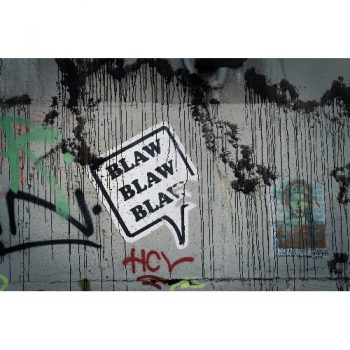“The great man is eminent in imagining things, and on this he hangs his reputation for knowing it all.” (Kahn 85, D 28A)
The term “the great man” seems to be used facetiously here, as when Heraclitus speaks of Homer as “the wisest” before showing how he nonetheless was naively deceived by boys (F22). As in the last fragment, Heraclitus denigrates the imagination, which might falsely lead others to maintain that they know what they merely imagine. His attacks on the “poets of the people” may be viewed as overlapping, but he sees such poets as doing little more than channeling the view of the masses. (F 59). Hesiod is another example. He is viewed as considered to know they most, but in Heraclitus’ assessment, he achieves no understanding (F 19). A reputation for learning does not indicate great learning has occurred. A reputation for greatness does not imply true greatness. As we later see in Socrates and Plato, imagination without understanding does not lead to knowledge.
